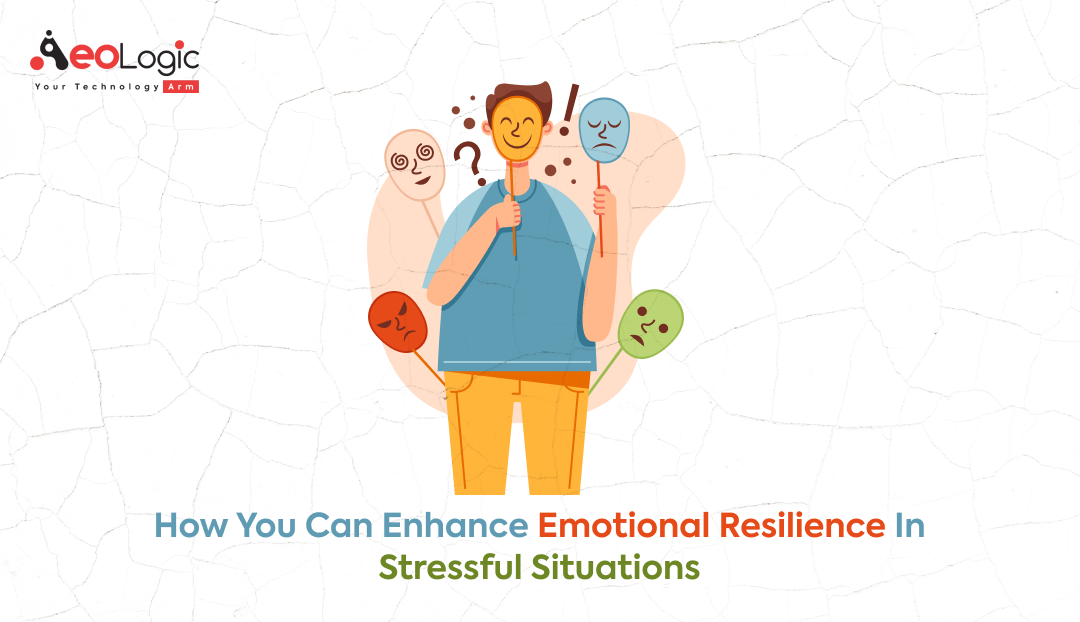Introduction
As recent months have demonstrated, stress is inevitable. Now, even more than ever, it’s important to understand stress and how we can manage it. While stress can be advantageous, too much of it can be dangerous. When the body senses a trouble (or stressor), it goes on high alert, and once the trouble passes, the body quickly recovers. At least that’s the way it’s supposed to work. In this blog, we will explore how you can enhance emotional resilience in stressful situations.
Stressors can include health matters, work, money, family issues, racism or gender inequality, and regular daily hassles. With implacable or too numerous stressors, your body might be on a constant state of high alert, leading to poor attention, bad moods, professional collapse, and internal and physical health problems.
When stress becomes habitual, the body can not return to normal functioning. habitual stress can be linked with health conditions, for example, heart complaint, high blood pressure, diabetes, depression and anxiety. In the following section, we will look at how emotional resilience changes from individual to individual and what are the ways we can strengthen the power to bounce back from misfortunes.
Also read: Self-Discipline Benefits and its Importance in Your Life
What’s Emotional Resilience and How to Enhance Emotional Resilience?
To enhance emotional resilience is kind of about winning the battle. It’s the strength to power through the storm and still keep the passage steady. Living in the period of technological revolution, every ten times we acclimatize to changes that no way was in our life ahead. From rigorous digitalization to the 24/7 social media influence, from the changing professions to conforming with the ways of Gen Y, it’s only natural to feel emotionally tied down at times. In a broad way, emotional resilience means bouncing back from a stressful hassle and not letting it affect our internal provocation. It isn’t a “bend but do not break” particularity, rather adaptability is accepting the fact that ‘I’m broken’ and continuing to grow with the broken pieces together.
Elements of Emotional Resilience
To enhance emotional resilience, one needs to understand its elements. It has three structure blocks – these are the pillars on which we can make adaptability or work on perfecting it. Also appertained to as the three confines of emotional resilience, the three elements include:
The Physical Element
Involving physical strength, energy, good health, and vitality.
The Mental or Psychological Element
Including aspects like adjustability, attention and focus, self- regard, self- confidence, emotional mindfulness and regulation, self- expression, thinking, and logic capacities.
The Social Elements
Including interpersonal connections (work, partner, children, parents, friends, community, etc), group conformity, likeability, communication, and co-operation.
Emotional Resilience Training Options
To enhance emotional resilience, it can be developed with proper knowledge, training, and provocation. Whether you’re dealing with office hazards, or witnessing a turbulent relationship, or sailing through the downsides of parenthood a little revolutionary at home, with emotional resilience you not only can deal with the situation effectively, you also guard yourself from the emotional desolation.
Resilience Training Program Aim at Perfecting Emotional Resilience by Making
Self-Awareness
The capability to tune into our own passions, internal conflicts, and perception of the world. Through tone- mindfulness, we gain a deeper understanding of how passions contribute to our conduct. Rather than looking for help outdoors, or condemning the world for our miseries, tone- mindfulness gives us the courage to look for answers within ourselves. By making us more attuned to our inner world, creating self-awareness helps us in getting more able and conscious.
Continuity
Resilience training helps a person develop the thickness and commitment to keep trying. Whether dealing with external stressors or handling internal conflicts, perseverance keeps the inner provocation alive.
Emotional Control
People with advanced situations of emotional and SELF-CONTROL can deflect themselves and manipulate their passions. They’re less likely to be overwhelmed by stress or let it affect their lives. They suppose before taking the vault and won’t launch fast into drawing conclusions.
Flexible Thinking
Alice Boyes (2014), in one of her publications in Psychology moment, mentioned that flexible thinking is an essential aspect of internal health that contributes toward the particular and professional success of any human being. It’s an important social skill that incorporates optimism, adjustability, rationality, and positive thinking. A person who has or has developed these skills through training or experience will surely be more emotionally flexible and well-balanced in life.
Interpersonal Connections
Having good particular connections is both a by-product and a needful for emotional resilience. However, we have formerly taken one step forward for a flexible life, if we have the power to make strong interpersonal bonds at the professional or the particular position.
We are social beings, and being girdled by people gives us the strength to overcome problems, endure them, and evolve from them. For making emotional resilience in a larger environment, we must have the capacity to ameliorate our being interpersonal connections and be open to making new ones.
Stress Management And Emotional Resilience
Managing with stress, or better to say, effectively managing with stress contributes directly towards making adaptability. Nonetheless, the whole idea of being emotionally flexible revolves around how well we are suitable to handle stress and get back on the track. Getting tied down with the daily stressors of life can be a big reason that we lose our emotional adaptability. We get more sensitive, over-reactive, and emotionally unstable. Indeed a little change of plans can leave us in a state of anxiety and fear. Studies have indicated that people with flexible mindset can deal with stress more effectively. Furthermore, they can bounce back from any stressful situation with positive energy and confidence. And they are more likely to learn things from traumatic hassles rather than get overwhelmed by them (American Psychological Association, 2012).
Simple Ways To Develop Resilience
- Be assertive
- Substitute negative thinking with positive ones
- Maintaining a healthy and active lifestyle
- Communicating often
- Taking feedback and criticism
- Relax and breathe
- Frequently deep breathing when you feel burnt out
- Meditation
- Walking in the nature
- Appreciating nature
- Cultivating hobbies
- Exploring your interests
Also read: Top Simple Habits to Improve Your Self-Motivation
Conclusion
Those with a advanced degree of emotional resilience can handle the stresses that come with day-to-day life more effectively and calmly. They are also suitable to manage heads more fluently. Fortunately, emotional resilience is a particularity that can be developed. In fact, it’s a particularity that’s worth developing for numerous reasons, not the least of which is that it can transfigure your life and your experience of stress.









